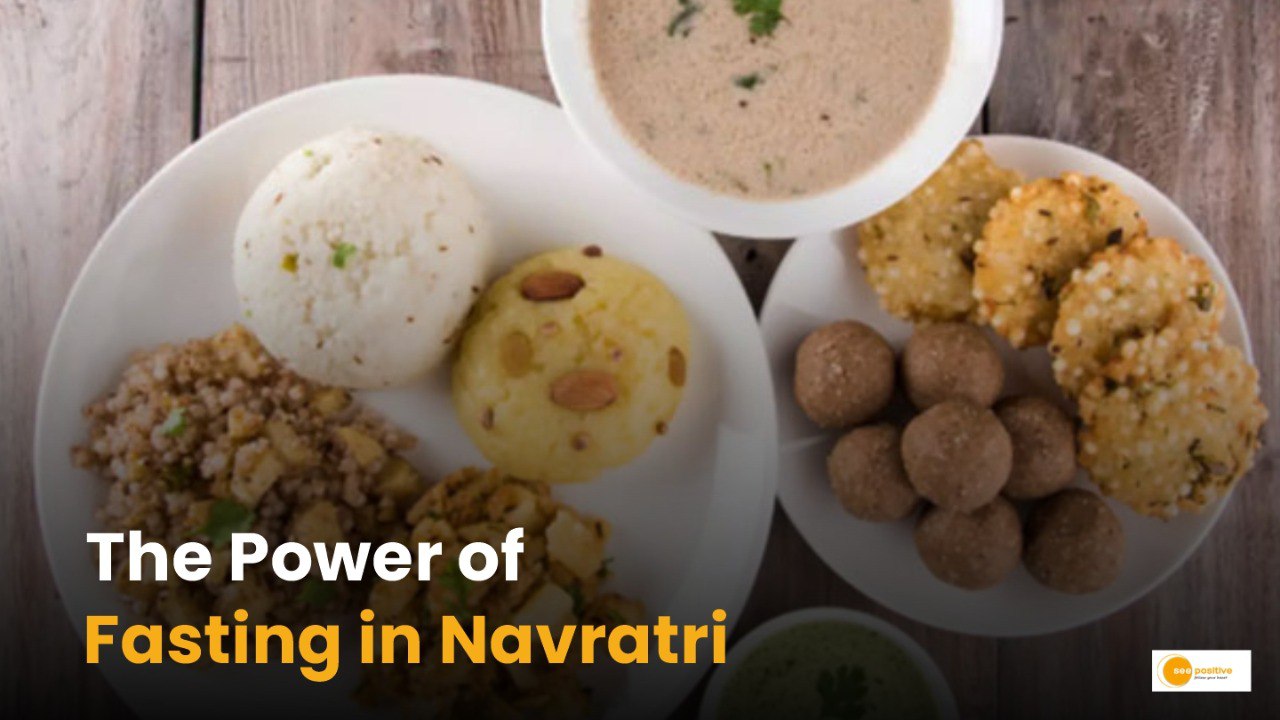Navratri, one of the most significant Hindu festivals, is a celebration of the divine feminine. The festival, lasting nine nights and days, is a time for devotion, prayer, reflection, and fasting. Fasting during Navratri holds deep religious and cultural significance, and it is seen as an opportunity for spiritual renewal, self-discipline, and connection with the divine. In this article, we will explore the various aspects of fasting during Navratri, its importance, and how it enriches the lives of devotees.
The Spiritual Significance of Fasting
At its core, fasting during Navratri is a spiritual practice aimed at cleansing the mind, body, and soul. By abstaining from food and certain earthly pleasures, devotees create a sense of purity and detachment from materialism. Fasting is considered an effective way to break free from worldly distractions and focus entirely on the worship of Goddess Durga. It is believed that fasting helps cultivate mindfulness, devotion, and inner strength, which in turn leads to a closer connection with the divine.
The festival of Navratri is dedicated to the worship of nine forms of Goddess Durga, collectively known as “Navadurga.” Each form of the goddess symbolizes different aspects of life and virtues, including strength, courage, wisdom, and protection. By fasting, devotees seek to embody these virtues and seek the blessings of the goddess for their own spiritual growth, protection from negative forces, and success in life.
A Symbol of Devotion
Fasting during Navratri is a symbolic act of devotion to the goddess. It is believed that by fasting, a person humbles themselves before the goddess and offers their physical needs as a form of surrender. This act of self-discipline is seen as a gesture of love and respect for the divine. For many, fasting is an expression of deep faith, a way of offering gratitude to Goddess Durga for her protection, and a means of receiving her blessings.
Spiritual Cleansing and Detoxification
One of the significant aspects of fasting during Navratri is the belief in spiritual and physical purification. Many followers of the tradition view fasting as a means of detoxifying not only the body but also the mind. The practice of abstaining from certain foods and habits is believed to clear the body of toxins, improve digestion, and reset one’s physical health. On a mental level, fasting helps to focus the mind on spiritual practices such as prayer, meditation, and chanting of mantras.
Strengthening Self-Discipline
Fasting is a practice of self-restraint, requiring individuals to control their desires and impulses. By abstaining from regular meals, meat, alcohol, and other indulgences, devotees develop a sense of discipline that can be applied to all aspects of their lives. The ability to exercise self-control is viewed as a path to personal growth, where the devotee learns to control their senses, ego, and attachment to material comforts.
Connecting with Community and Tradition
Fasting during Navratri is not just a personal spiritual endeavor; it is also an important cultural practice that binds communities together. Families, friends, and temples often observe this period in unity, performing prayers, rituals, and devotional activities. The communal aspect of fasting strengthens social bonds, fosters a sense of belonging, and revives cultural heritage. Additionally, the collective energy during this time adds to the positive vibrations and spiritual upliftment of the entire community.
Health Benefits of Fasting
While the primary purpose of fasting during Navratri is spiritual, there are also numerous physical health benefits associated with the practice. Fasting is often associated with detoxification, improved digestion, and better mental clarity. By consuming lighter and more plant-based foods, devotees may experience increased energy levels and a sense of renewal.
However, it is essential to approach fasting mindfully. It is advised that individuals consult a doctor before engaging in extended fasting, particularly if they have underlying health conditions. Many followers of Navratri prefer to maintain balance and take care to nourish their bodies adequately during the fasting period.
Positive Takeaway
Fasting during Navratri is a profound spiritual and cultural practice that holds great significance in Hinduism. It is a time for personal reflection, devotion, and spiritual growth, as well as a way to honor Goddess Durga and her many forms. Beyond the physical act of abstaining from food, fasting during this time symbolizes inner strength, self-discipline, and devotion, while also fostering a sense of community and cultural continuity.
Whether through simple abstinence, consumption of sattvik foods, or engaging in deep spiritual practices, fasting during Navratri offers devotees the opportunity to reset both spiritually and physically. It serves as a reminder of the transformative potential of self-discipline.


